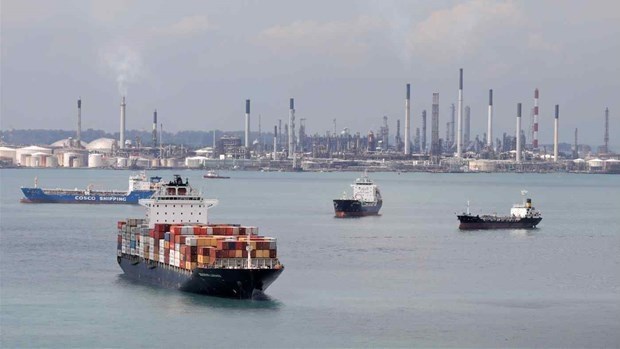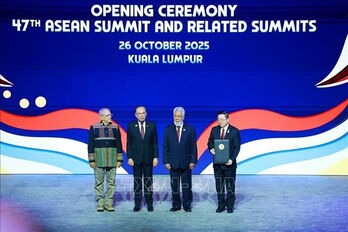
Cargo ships offshore Singapore (Photo: Reuters)
Addressing an online press conference on April 13, acting director of the IMF's Asia and Pacific Department Jonathan D. Ostry said this is a "very welcome step."
According to the official, the global environment has been extremely challenging, and yet Asia was able to conclude this agreement in this challenging environment, sending a very powerful signal.
Trade has been a powerful driver of growth and poverty alleviation in Asia for decades, Ostry noted, adding that even as there were global trade tensions, Asia sought to invigorate regional trade liberalisation.
RCEP, signed in November 2020, groups the 10 members of the Association of Southeast Asian Nations (ASEAN) as well as China, Japan, the Republic of Korea, Australia and New Zealand.
RCEP brings together many countries, including three regional giants -- China, Japan, and the Republic of Korea - for the first time in a common regional agreement, Ostry said.
The newly-signed agreement could provide a powerful impetus for greater trade in the Asia and Pacific region, he went on.
According to the IMF's recent projections, Asia-Pacific is expected to grow by 7.6 percent this year and by 5.4 percent next year, thanks to the recovery of regional countries.
Ostry underlined the need to further efforts in order to advance the green agenda and push forward the promising shift toward a greener energy mix emerging amid the pandemic./.
VNA
 Timor-Leste seeks trade & investment expansion following ASEAN accession
Timor-Leste seeks trade & investment expansion following ASEAN accession



